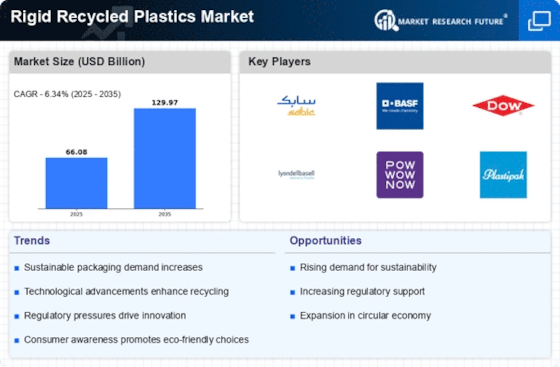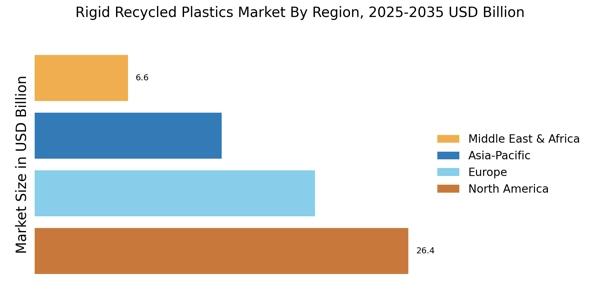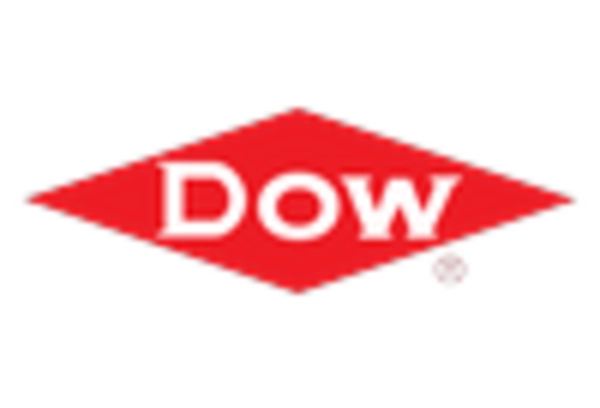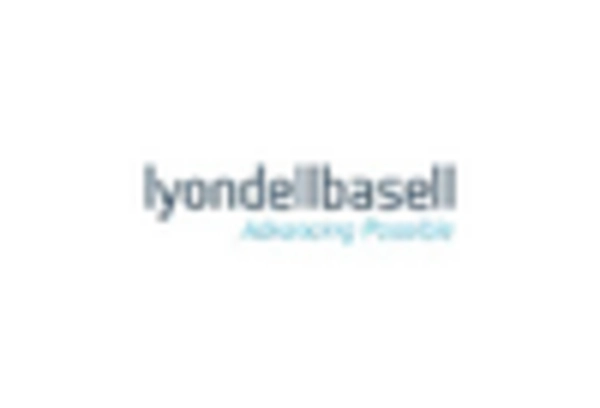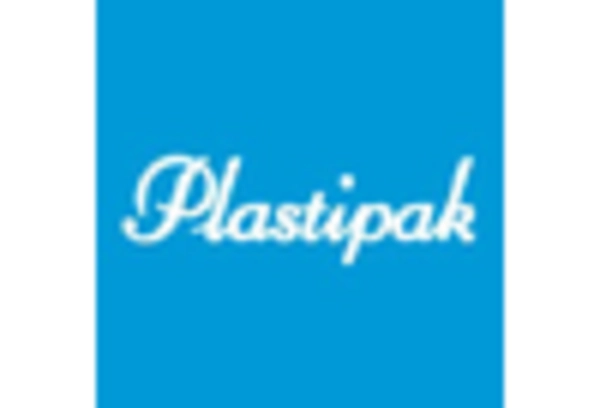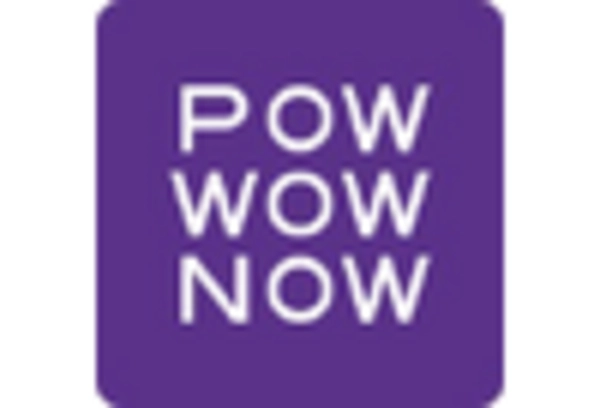Regulatory Frameworks Promoting Recycling
The Rigid Recycled Plastics Market is significantly shaped by evolving regulatory frameworks that promote recycling and the use of recycled materials. Governments worldwide are implementing stricter regulations aimed at reducing plastic waste and encouraging the adoption of recycled plastics. For example, many regions are setting ambitious targets for recycling rates and mandating the use of recycled content in packaging. By 2025, it is anticipated that these regulations will create a more favorable environment for the rigid recycled plastics market, potentially increasing demand by up to 30% in certain sectors. This regulatory push not only fosters innovation in recycling technologies but also incentivizes companies to invest in sustainable practices, thereby driving the overall growth of the industry.
Increasing Demand for Sustainable Packaging
The Rigid Recycled Plastics Market is experiencing a notable surge in demand for sustainable packaging solutions. As consumers become more environmentally conscious, companies are increasingly adopting recycled plastics to meet these expectations. In 2025, the market for rigid recycled plastics is projected to reach approximately 20 billion USD, driven by the need for eco-friendly packaging options. This shift is not merely a trend; it reflects a broader commitment to sustainability across various sectors, including food and beverage, cosmetics, and consumer goods. The adoption of rigid recycled plastics not only reduces waste but also lowers the carbon footprint associated with traditional plastic production. Consequently, businesses that integrate these materials into their packaging strategies are likely to enhance their brand image and appeal to a growing demographic of eco-aware consumers.
Consumer Preference for Eco-Friendly Products
Consumer preferences are increasingly shifting towards eco-friendly products, which is a crucial driver for the Rigid Recycled Plastics Market. As awareness of environmental issues grows, consumers are actively seeking products made from recycled materials. This trend is particularly evident in sectors such as packaging, where brands are responding to consumer demand by incorporating rigid recycled plastics into their offerings. Market Research Future indicates that approximately 70% of consumers are willing to pay a premium for products that are environmentally friendly. This willingness to invest in sustainable options is likely to propel the rigid recycled plastics market forward, as manufacturers strive to align their product lines with consumer values. Consequently, businesses that prioritize eco-friendly materials may gain a competitive edge in an increasingly crowded marketplace.
Corporate Sustainability Goals and Initiatives
The Rigid Recycled Plastics Market is being propelled by the increasing number of corporations setting ambitious sustainability goals. Many companies are committing to using a certain percentage of recycled materials in their products as part of their corporate social responsibility initiatives. By 2025, it is projected that over 50% of major corporations will have established specific targets related to the use of recycled plastics. This commitment not only enhances their brand reputation but also contributes to the overall demand for rigid recycled plastics. As businesses strive to meet these sustainability targets, they are likely to drive innovation in recycling technologies and processes, further bolstering the market. The alignment of corporate strategies with environmental goals is thus a significant factor influencing the growth trajectory of the rigid recycled plastics industry.
Technological Innovations in Recycling Processes
Technological advancements in recycling processes are significantly influencing the Rigid Recycled Plastics Market. Innovations such as advanced sorting technologies and chemical recycling methods are enhancing the efficiency and quality of recycled plastics. For instance, the introduction of AI-driven sorting systems has improved the separation of different plastic types, leading to higher purity levels in recycled materials. This is crucial as the quality of recycled plastics directly impacts their marketability and application in various industries. As of 2025, the market is expected to benefit from these technological improvements, potentially increasing the volume of recycled rigid plastics available for manufacturing. Such advancements not only optimize resource utilization but also contribute to the overall growth of the recycling sector, making it a pivotal driver in the rigid recycled plastics landscape.


